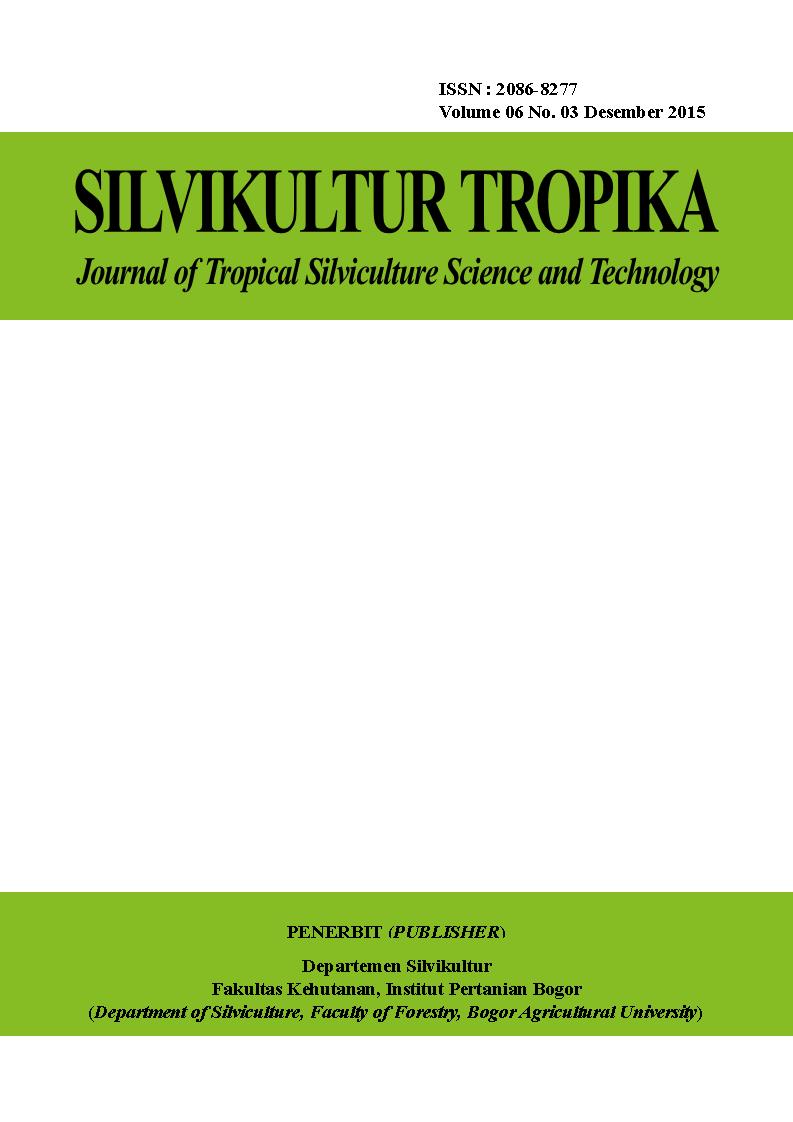Financial and Income Analysis of Pulai (Alstonia sp.) Private Forest in Musi Rawas Regency, South of Sumatera Province ANALISIS FINANSIAL DAN PENDAPATAN HUTAN RAKYAT PULAI (Alstonia sp.) DI KABUPATEN MUSI RAWAS, PROVINSI SUMATERA SELATAN
Abstract
Pulai (Alstonia sp.) private forests have became an alternative source of raw material for wood based industries. This research is located in village of Sumber Harta and SP 5 Suka Makmur, District of Musi Rawas, it was multistage sampling for 80 respondents. This study aims to analyze the financial feasibility of Pulai private forest and its contribution to household income. Data was collected by field observation, interview and literature study. The business eligibility and its sensitivity were measured by investment criteria i.e. NPV, Net B/C, and IRR for monoculture KUHR (credit scheme for private forest business) and agroforestry Pulai with Rubber (Hevea brasiliensis) with the 30-years cutting cycle. The results showed that (1) Pulai plantation is feasible both for monoculture and agroforestry Pulai with Rubber. The monoculture system of Pulai plantation showed some parameters of financial aspects NPV, BCR, and IRR are Rp 67 130 372, 2.50 and 16.28% respectively. Agroforestry Pulai and Rubber showed NPV, BCR, and IRR respectively are Rp 70 978 82, 1.8 and 22.87% (2) The contribution of Pulai private forest for household income in average is about 10.14% of total income. The incomed was dominated by rubber farming (61% in average). Based on the Sayogyo’s poverty criteria, Pulai farmers in Musi Rawas were categorized in sufficient 55%, almost poor 17.5%, poor 3.8% and including decent life 22.5%.
Key words: Agroforestry, financial analysis, income, monoculture, private forest, pulai










